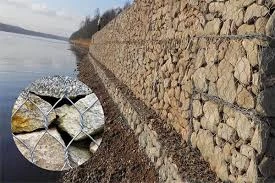
Sep . 22, 2024 10:22 Back to list
wire mesh fence price
Understanding Wire Mesh Fence Prices
Wire mesh fences are widely used for various applications, including residential, commercial, and agricultural purposes. They are valued for their durability, versatility, and cost-effectiveness. As the demand for such fences continues to grow, understanding the pricing structure becomes essential for homeowners and business owners alike.
Factors Influencing Wire Mesh Fence Prices
1. Materials The primary determinant of wire mesh fence prices is the material used. The most common materials include galvanized steel, stainless steel, and vinyl-coated wire. Galvanized steel is often the most affordable option due to its corrosion resistance and strong structure. Meanwhile, vinyl-coated wire offers additional protection and aesthetic appeal but comes at a higher price point.
2. Height and Gauge The height and gauge (thickness) of the wire also significantly affect the cost. Standard heights range from 3 to 6 feet, with taller fences generally costing more. Similarly, lower gauge numbers indicate thicker wire, which enhances durability but increases the price. When selecting the height and gauge, it’s essential to consider the specific needs of your property, such as the level of security required and any local regulations.
3. Style and Design Wire mesh fences come in various styles and designs, which can influence pricing. For instance, basic chain-link fences are typically less expensive than decorative options that incorporate different weaving patterns or colored coatings. Custom designs can further drive up the costs, but they may provide added functionality or visual appeal.
wire mesh fence price

4. Installation The installation process can also affect the overall cost. Professional installation costs vary by region and company, so it’s worth obtaining multiple quotes. DIY installation may save money upfront, but it’s essential to consider the time and effort required for proper setup, especially for larger properties.
5. Location Geographic location plays a significant role in pricing. In urban areas, where the demand for fencing might be higher, prices could be elevated compared to rural settings. Additionally, local regulations and zoning laws may impose specific requirements that could impact costs.
Average Prices
On average, homeowners can expect to pay between $10 to $30 per linear foot for wire mesh fencing, depending on the factors mentioned above. Installation costs can range from $5 to $15 per linear foot. Thus, the total cost could tally up to $15 to $45 per linear foot when accounting for both materials and labor.
Conclusion
In conclusion, understanding wire mesh fence prices requires consideration of several factors, including materials, height, gauge, style, installation, and location. By carefully evaluating these elements, property owners can make informed decisions that meet their security and aesthetic needs while staying within budget. Investing in a quality wire mesh fence not only enhances the property’s security but can also add significant value over time.
-
build-a-discreet-chicken-run-with-sturdy-green-coated-chicken-wire
NewsAug.23,2025
-
a-guide-to-selecting-the-most-durable-field-gates-for-your-property
NewsAug.23,2025
-
green-mesh-fencing-rolls-offer-versatile-solutions-for-diverse-needs
NewsAug.23,2025
-
chain-fence-for-durable-and-versatile-enclosure-solutions
NewsAug.23,2025
-
garden-edging-fence-for-functional-and-decorative-landscaping
NewsAug.23,2025
-
3d-wire-mesh-fence-for-versatile-security-and-decoration
NewsAug.23,2025
Products categories











